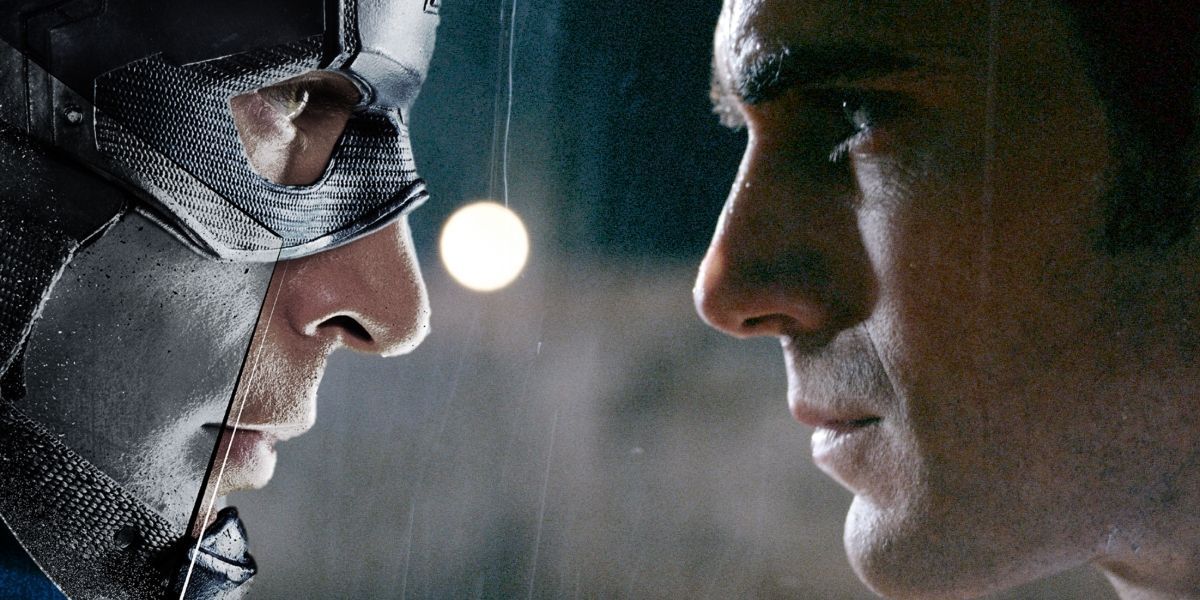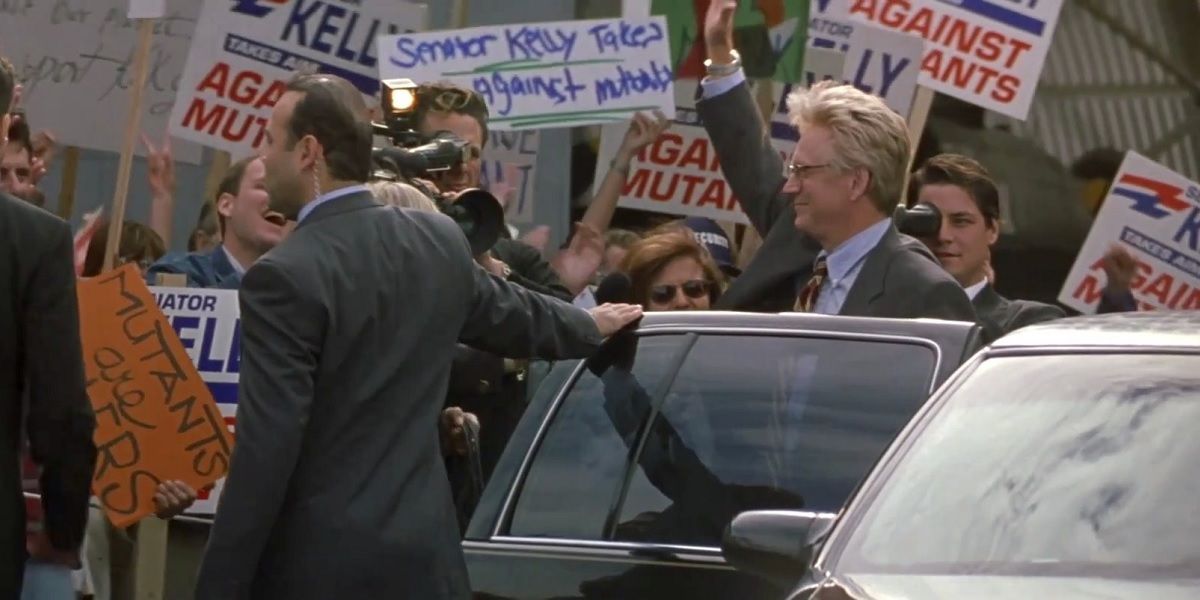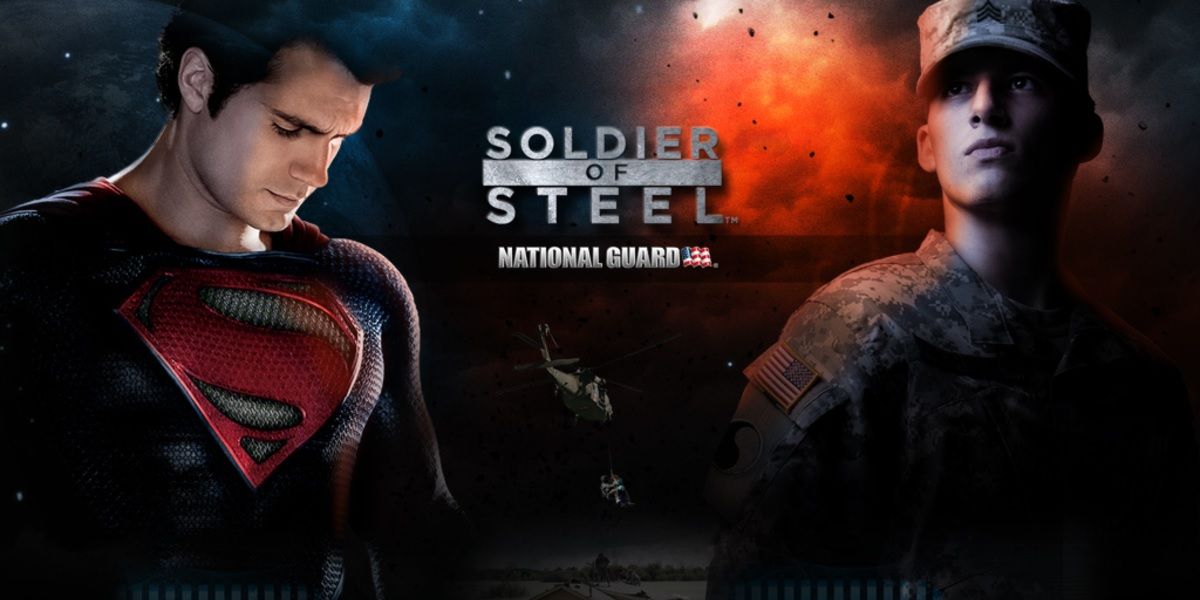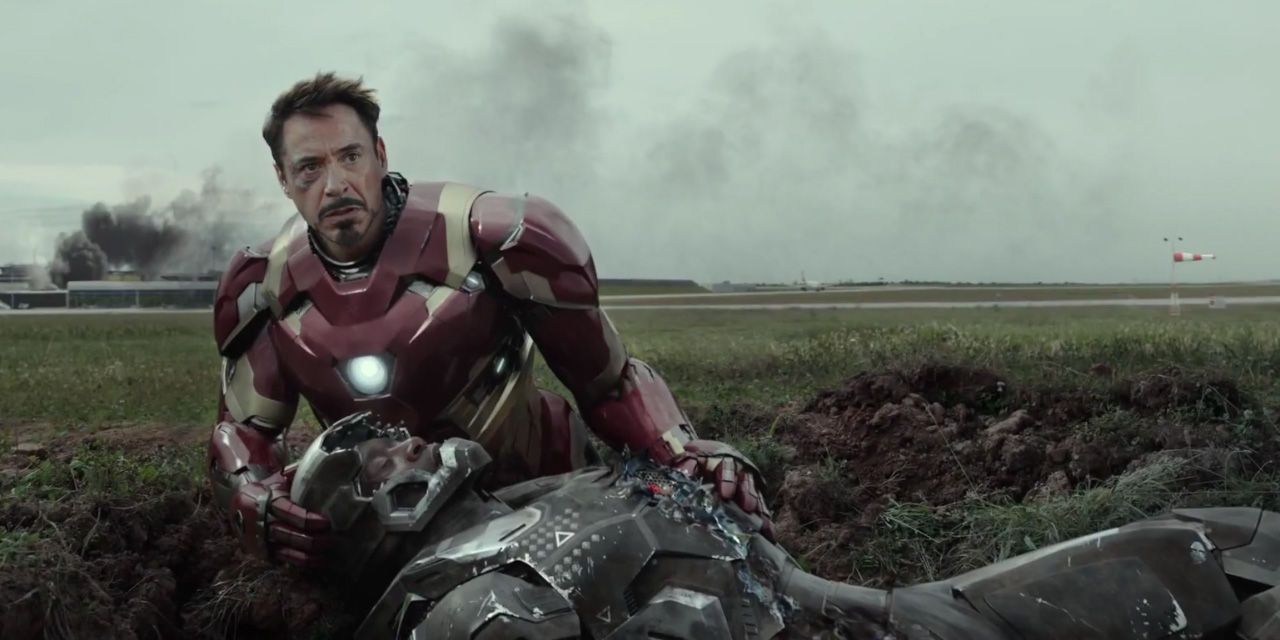2016 promises to be, if nothing else, a very interesting year for superhero movies. Whether by accident or design, Marvel Studios and Warner Bros. will be releasing two films in quick succession that are both based around the theme of superheroes being held accountable for their vigilante actions, symbolized by hero-on-hero violence. Zack Snyder's Batman v Superman: Dawn of Justice will introduce the DC Extended Universe's version of Batman for the first time as a wrathful force seeking to bring Superman to justice for the events of Man of Steel. Meanwhile, Iron Man and Captain America will come to blows - forcing the rest of the Avengers to take sides - over the topic of superhero supervision in Captain America: Civil War, which was directed by Anthony and Joe Russo.
This generation of superhero movies has frequently butted up against the idea of authority. Between the vigilante antics of characters like Spider-Man and Batman, and the terrifyingly powerful nature of characters like Superman and Thor, the genre's collision with the question of whether these characters should be above the law seems inevitable in hindsight. Though comic books and superheroes were once thought of as being for kids, these movies are largely marketed towards adults, and these are the kinds of questions that adults like to ask.
The turn of the 21st century brought with it the arrival of Bryan Singer's X-Men, the first entry in what has since become a sprawling cinematic universe with multiple timelines. The film also began a conversation that has continued, in one form or another, for 15 years and is set to be a prominent entity in next year's slate of superhero movies.
X-Men opens with three scenes, in succession: a young Magneto trudging through the mud at Auschwitz, staring at the numbers branded on people's skin and the yellow stars sewn on their clothes, before being permanently ripped from his family; a teenage Rogue kissing a boy for the first time and screaming hysterically for her parents as she accidentally puts him in a coma; and Jean Grey debating the morality of the proposed Mutant Registration Act with Senator Kelly. The threads of that opening triptych can be traced through the franchise all the way up to last year's release, X-Men: Days of Future Past, and the same themes have emerged in Warner Bros. and Marvel Studios' superhero properties as well.
Citing the case of Kitty Pryde, who can walk through walls, Kelly asks, "What's to stop her from walking into a bank vault, or into the White House?" In his view, the very fact of mutants' abilities makes them inherently dangerous - to paraphrase Lex Luthor in the latest Batman v Superman trailer, Kelly believes that such power can never be innocent. When Sam Raimi's Spider-Man burst onto the scene a couple of years later, irascible Editor-in-Chief J. Jonah Jameson had similar concerns (if different motives). Like Kelly, he saw superhero anonymity as not only dangerous, but suspicious. "Why does he wear a mask?" Jameson demands. "What's he got to hide?"
Neither Kelly nor Jameson are outright villains, but their beliefs that superheroes should be unmasked, tagged and registered are firmly framed as antagonistic. This makes it all the more interesting that in Captain America: Civil War, Tony Stark will apparently be making this same argument as a superhero himself, and as a character that audiences have come to love.
When it comes to the matter of vigilantism - whether it's Spider-Man taking out bad guys or the X-Men going after Magneto - the most common in-universe justification is that the existing law enforcement is either incompetent or underpowered (this is also the most common justification in our universe). In Spider-Man the police are portrayed as a kind of bumbling comic relief, scratching their heads as they stare up at thieves caught in spider-webs or trying in vain to arrest Green Goblin while Spider-Man says "oh boy" indulgently. In X2, their impotence is considerably less cute. They are frightened by anti-mutant rhetoric and out of their league, shooting Wolverine in the head when he fails to put down his 'knives' and subsequently getting (nearly) roasted alive by Pyro.
The arrival of Batman Begins in 2005 threw the relationship between superheroes and the law into sharper relief. When a young and angry Bruce Wayne confronts Carmine Falcone, the mob boss points out that his restaurant's current clientele includes "two councilmen, a union official, a couple of off-duty cops and a judge," and claims he could shoot Bruce in front of them all without any fear of repercussion. It's a scene that could have been the building block for a superhero trilogy about how vigilantism is a superior alternative to the corruptible criminal justice system, but Christopher Nolan's Dark Knight trilogy would ultimately go on to portray anarchy as the villain, and Batman's relationship with the government, police, and Gotham society as complex rather than strictly adversarial.
Nowhere do the Dark Knight trilogy's feelings about cops and authority figures get more complex than in The Dark Knight Rises. In a skewed precursor to next year's dawn of superhero accountability, The Dark Knight Rises saw Batman held accountable for the one crime he did not commit, and the scapegoating of this vigilante bogeyman lends Commissioner Gordon the political drive he needs to throw Gotham's organized crime gangs in prison and keep them there with no hope of parole. John Blake, after discovering this lie and witnessing his fellow police officers' willingness to sacrifice the lives of children, loses faith in the system and turns in his badge at the end of the film. Yet The Dark Knight Rises also shows an army of policemen cheering as Batman joins them in the fight against Bane and his men. From the film's start to its finish we see a Batman is allied with the law and its goals, but not ruled by its process or ethics.
Next: The Soldier of Steel
In the next major DC entry, Zack Snyder's Man of Steel, Superman's relationship with human authority is further complicated by behind-the-scenes details: specifically, the fact that the U.S. National Guard was a marketing partner. Warner Bros. was approached by the National Guard with a pitch for a "Soldier of Steel" marketing campaign, to simultaneously promote Man of Steel and drive National Guard recruitment. Snyder himself filmed some of the "Soldier of Steel" ads once principal photography on Man of Steel was complete. Though obviously there's a degree of separation between the film itself and its marketing, it goes without saying that Man of Steel wasn't going to, for example, show a frightened National Guardsman abandoning a schoolbus full of orphans.
Indeed, a scene that was prominently featured in Man of Steel's marketing was Superman in handcuffs, surrounded by soldiers, in a symbolic act of deference to the authority of the U.S. Armed Forces. It's the first step in an alliance between himself and the military that is based on trust and mutual goals. "You're scared of me because you can't control me," he tells General Swanwick, after snapping his handcuffs effortlessly to drive the point home. "You don't. And you never will. But that doesn't mean I'm your enemy."
It's the crux of the problem with superheroes and authority: this separation of authority from power. While a mere mortal who breaks the law can be chased down, arrested and thrown in jail, how can you arrest someone like Superman unless he permits it? Magneto, who is not even the most powerful mutant in the X-Men universe, can only be kept prisoner in elaborately constructed plastic prisons, and even then does not stay a prisoner for long. Senator Kelly's argument for mutant registration is tied up with his fear that mutants cannot be controlled; that if they chose to, they could probably wipe out the human race. If the government is a controlling parental hand, then superheroes are its adult offspring who no longer have to do as they're told.
The set-up for Captain America: Civil War and Batman v Superman: Dawn of Justice isn't quite the same. In the former, the lines are clearly drawn: Tony Stark believes that it's the Avengers' responsibility to "accept limitations" in order to differentiate themselves from the bad guys. Steve Rogers doesn't outline his exact objections in the trailer, but they're tied up with his desire to protect his friend Bucky Barnes, who has caused great harm with his abilities whether he intended to or not. Tying together what we know about the movie and its comic book source material, it's clear that Captain America views the Sokovia Accords as a violation of liberty, while Iron Man believes they're a necessary precaution.
The latest Batman v Superman trailer indicated that the battle lines will be less clear-cut in Snyder's film. While the initial Comic-Con trailer painted a picture of both Batman and Senator Finch seeking to hold Superman responsible for the destruction in Metropolis, and civilian protesters similarly blaming him, Clark Kent rightfully points out that Gotham's Bat-vigilante "thinks he's above the law" and accuses him of trampling on civil liberties and creating an atmosphere of fear in Gotham City. Both of these superheroes have an uncomfortable relationship with the people that they're trying to protect.
Though Civil War and Dawn of Justice have yet to be released, it's already possible to see threads of cinematic conversation in their premises that date back to the turn of the century and the arrival of X-Men and Spider-Man. In that time, less family-friendly superhero movies like Kick-Ass, Super and Watchmen have thrown the question of whether superheroes can be trusted into sharper relief. After all, should justice really be decided by people with dangerous amounts of power and myriad personality problems operating with total anonymity and zero government oversight?
One obvious response to this is that superhero movies are escapism, and shouldn't need to justify their protagonists' actions. But the clash between superheroes and authority has proven to be one of the most compelling recurring topics of the past 15 years, and it will be intriguing to see how it continues to evolve in 2016.
NEXT: Civil War's Superhero Registration Act Explained
Batman v Superman: Dawn of Justice releases March 25th, 2015, followed by Captain America: Civil War on May 6th.




